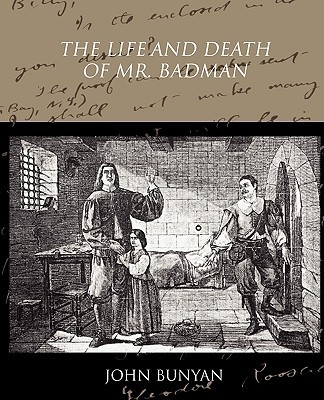
- We will send in 10–14 business days.
- Author: John Bunyan
- Publisher: Book Jungle
- Year: 2009
- Pages: 190
- ISBN-10: 1438531753
- ISBN-13: 9781438531755
- Format: 19.1 x 23.5 x 1 cm, softcover
- Language: English
- SAVE -10% with code: EXTRA
Reviews
Description
John Bunyon was an English 17th Christian writer and preacher. He is best known for his allegory The Pilgrims Progress. In his autobiographical book, Grace Abounding, Bunyan describes himself as having led an abandoned life in his youth, and as having been morally reprehensible as a result. After contemplating his acts as a youth he became a Baptist. In 1655 he became a church deacon and began preaching. Life and Death of Mr. Badman is a dialogue between Mr. Wiseman and Mr. Attentive. Bunyan describes this book as ""the Life and Death of the Ungodly and their travel from this world to Hell." Mr. Badman is a greedy lustful storekeeper in a Puritanical 17th century small town. The dialogue begins, "Wiseman. Good morrow my good Neighbour, Mr. Attentive; whither are you walking so early this morning? methinks you look as if you were concerned about something more than ordinary. Have you lost any of your Cattel, or what is the matter? Attentive. Good Sir, Good morrow to you, I have not as yet lost ought, but yet you give a right ghess of me, for I am, as you say, concerned in my heart, but 'tis because of the badness of the times. And Sir, you, as all our Neighbours know, are a very observing man, pray therefore what do you think of them?"
EXTRA 10 % discount with code: EXTRA
The promotion ends in 19d.21:54:20
The discount code is valid when purchasing from 10 €. Discounts do not stack.
- Author: John Bunyan
- Publisher: Book Jungle
- Year: 2009
- Pages: 190
- ISBN-10: 1438531753
- ISBN-13: 9781438531755
- Format: 19.1 x 23.5 x 1 cm, softcover
- Language: English English
John Bunyon was an English 17th Christian writer and preacher. He is best known for his allegory The Pilgrims Progress. In his autobiographical book, Grace Abounding, Bunyan describes himself as having led an abandoned life in his youth, and as having been morally reprehensible as a result. After contemplating his acts as a youth he became a Baptist. In 1655 he became a church deacon and began preaching. Life and Death of Mr. Badman is a dialogue between Mr. Wiseman and Mr. Attentive. Bunyan describes this book as ""the Life and Death of the Ungodly and their travel from this world to Hell." Mr. Badman is a greedy lustful storekeeper in a Puritanical 17th century small town. The dialogue begins, "Wiseman. Good morrow my good Neighbour, Mr. Attentive; whither are you walking so early this morning? methinks you look as if you were concerned about something more than ordinary. Have you lost any of your Cattel, or what is the matter? Attentive. Good Sir, Good morrow to you, I have not as yet lost ought, but yet you give a right ghess of me, for I am, as you say, concerned in my heart, but 'tis because of the badness of the times. And Sir, you, as all our Neighbours know, are a very observing man, pray therefore what do you think of them?"


Reviews